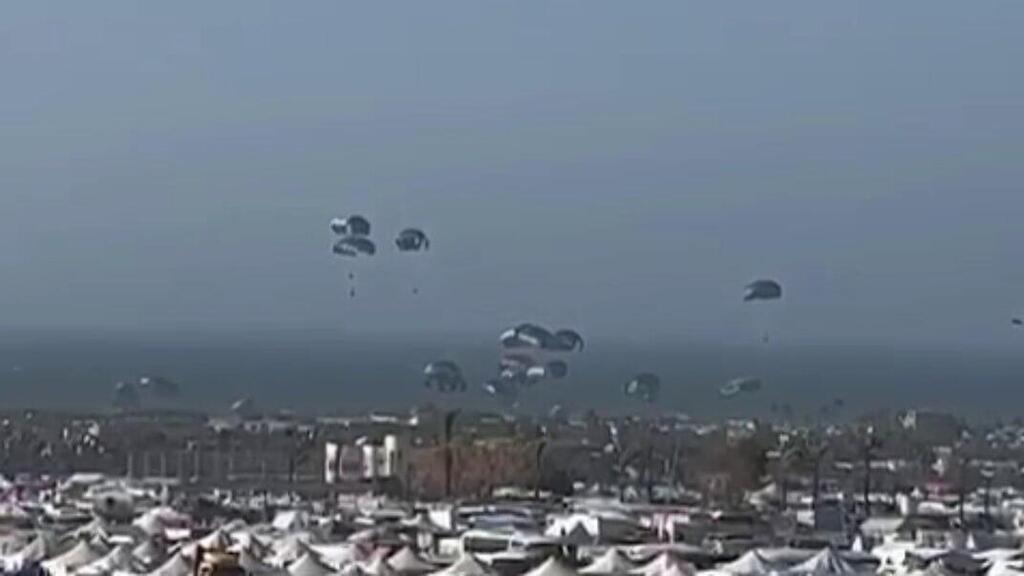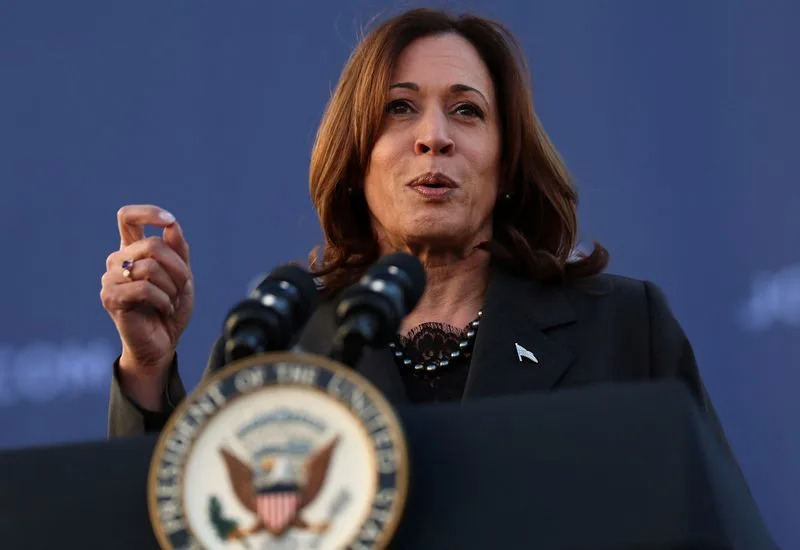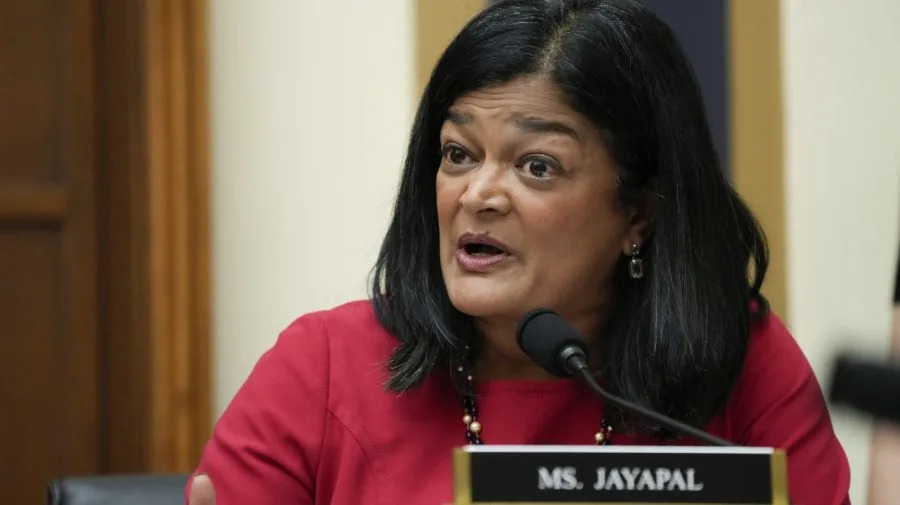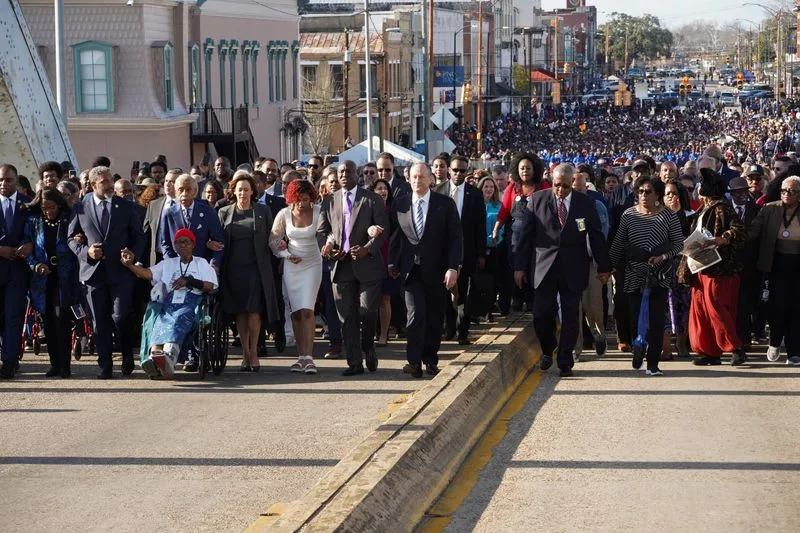Why Europe’s ambitious Green Deal hinges on farmers

|
Yves Herman/ReutersView caption
By Ned Temko Columnist
February 29, 2024|LONDON
The growl of diesel-powered tractors, the stench of burning tires, manure sprayed at police. This week, in the normally staid Belgian capital of Brussels, months of protests by farmers across the 27-nation European Union became something much closer to a farmers rebellion.
And at its heart is a policy challenge with much wider, international implications: How can governments stem the rapid overheating of our planet, and build more environmentally sustainable economies, in a way that is politically sustainable as well?
For while the farmers’ grievances vary from country to country, their protests have been eagerly embraced by right-wing populist parties. The parties are taking aim at the EU’s ambitious European Green Deal, designed to make Europe the world’s first climate-neutral continent by 2050.
WHY WE WROTE THIS
Farmer protests in Europe pose a global question: How can governments make the shift to environmental sustainability politically sustainable?
With far-right groups already expected to make major gains in June’s elections for the European Parliament (that take place every five years), EU leaders have responded to the protests by beating a hasty retreat on a range of climate measures affecting agriculture.
Both France and Germany have shelved policies that would increase the price farmers pay for diesel fuel. The EU’s executive commission has backed away from Green Deal constraints on the use of inorganic fertilizers and some pesticides.
EU leaders still say they are determined to find longer-term arrangements that address farmers’ concerns while maintaining their commitment to their green economic agenda.
Recommended
How, and whether, they succeed will be closely watched by the rest of the world.

Lisi Niesner/ReutersView caption
The EU does have one major reason to feel confident. Opinion surveys show that most European citizens by far rank climate change as a serious problem, and 88% say they’re on board with the EU’s 2050 carbon-neutral target.
Many of the farmers themselves are concerned by the effects of global warming. High on the list of protesters’ grievances in Greece, for instance, has been the lack of adequate, timely compensation for last year’s devastating wildfires and flooding there.
But if EU countries are going to meet their targets, they cannot avoid the kind of measures their leaders have now hurriedly sheathed: reductions in the use carbon fuels such as diesel, and in the emission of hydrogen pollutants and methane from fertilizers and dairy farming.
Agriculture accounts for only about 1.5% of the EU economy, but it accounts for 10% of the bloc’s emission of the greenhouse gases that fuel global warming.
And while a shift to more sustainable agriculture is likely to require government money, getting that money could prove to be the easiest part
One key question will be where that money is spent.
European farmers already get huge EU subsidies; they amount to nearly one-third of the bloc’s central budget. But most of that by far goes to a relatively small number of large farming businesses. Smaller farmers are left feeling economically squeezed.
That has been especially true in the past few years, when the war in Ukraine has caused fuel and fertilizer price hikes, while farming families have also had to deal with the general increase in consumer prices.
Farmers in Poland, especially, but other wheat producers in Europe, too, have also seen their earnings fall as a result of the EU’s decision to allow tariff-free sales of Ukrainian grain. That helps explain many of the protesters’ call for Brussels to abandon a potential new free trade deal with farmers in South America, seen as likely to drive down the price of their own crops.
But there’s an even tougher challenge, of which money is just one part, that has made the political message of the Green Deal’s populist critics so alluring
It is the need to address the sense of dislocation felt by farmers who are being made to change the way they work and live to facilitate a climate transition being promoted by urban politicians who are far less affected and far better placed financially to adapt.
This has been an especially important catalyst for the protests in Germany, powerfully symbolized by the dangling of farmers’ empty work boots from streetlights and signposts – expressing a sense of loss eloquently described by one local writer late last month.
Jolted by the protests into reassessing their approach, European leaders will have to acknowledge that mood. One obvious option under discussion would focus emission-reduction efforts on the large-scale farming enterprises best able to cope with the transition, while giving more flexibility, and direct support, to smaller farmers.
But the EU will now be keenly aware of the need for more careful management of the changes being required of other parts of its economy if it is going to make the Green Deal work, from the coal mines of Poland to the automakers of Italy.
And while climate change experts will be rooting for the EU to succeed, they are alarmed by its leaders’ scurrying retreat in the face of the farmer protests.
They are worried that this smells of political panic, and that it will encourage opponents of climate action to try to block, or at least whittle down, other key aspects of the Green Deal.
As one Belgian environmentalist, reacting to the Brussels street clashes this week, quipped, maybe “we should get tractors.”
Europe Succumbs to the Farmers’ Revolution

Najib Saab
Secretary-General of the Arab Forum for Environment and Development (AFED) and editor-in-chief of Environment and Development magazine
Sunday - 3 March 2024
Finally, Europe has succumbed to the farmers’ revolution, with the European Parliament elections around the corner. The main motivation for this turnaround by the European Commission was not to put an end to the throwing of cow dung and burning fodder at the doors of the European Commission’s headquarters in Brussels, but rather the fear of the expansion of the extreme right. Before being elected to a second term next week, Commission President Ursula von der Leyen withdrew a draft law to reduce the use of chemical pesticides by half before 2030, while pledging to continue consultations on the matter.
In doing so, she spared the European Parliament embarrassment and facilitated her own re-election process. In the wake of farmers’ demonstrations and the smoke of protest fires in more than one capital, the European Parliament approved earlier this week a watered-down version of the Nature Restoration law, which requires the rehabilitation of 20 percent of natural sites and ecosystems, turning them into protected areas before the end of the current decade.
Both reducing chemical pesticides and reclaiming nature were an essential element of the agricultural section of the Green Deal, which was launched by the European Union in 2019. The agricultural strategy in the Deal aims at building a carbon-neutral agricultural sector by 2050, and to make agriculture and food production more environmentally friendly at all stages, under the farm-to-fork slogan, while protecting ecosystems and preserving biodiversity.
Backing down was not solely aimed at defusing the explosion sparked by street protests against the rise in fuel prices, the strict environmental measures that some considered extremely burdensome and obstructive to the economy, and cheap imported agricultural products that compete with local production. This turnaround, in essence, is an expression of growing concern about the further rise of the far right before the European elections next June.
In fact, right-wing extremist parties, that question the feasibility of European Union policies, to the extent of demanding exit from the EU in some extreme cases, are advancing today in 8 of the 27 member states. It is natural for EU enthusiasts to consider this a terrifying development, made possible due to the right’s exploitation of the pressure caused by the influx of immigrants on the economy and local communities, and the impact of high inflation rates on daily life. Populist rhetoric and right-wing party agendas focused on holding national authorities, and EU bodies in general, responsible. This found welcoming ears, especially with millions of immigrants and asylum seekers spreading beyond major cities, to become a majority in some small towns, thus threatening their social fabric.
The Farmers’ Revolution reached its peak with the emergence of the Farmer-Citizen movement in the Netherlands, which began with protests against the use of ammonia in fertilizers, which is the major cause of nitrogen emissions, one of the most powerful greenhouse gases. The protest movement soon turned into a major political force, winning many seats in local councils and parliament, and allying itself with extremist right-wing parties, while expanding to more countries, not the least of which were France and Germany. Here we can understand the cause of alarm, for farmers who historically supported Christian Democrats and centrist parties, which makes their shift to the extreme right a real threat to reverse the traditional balance. Further complicating matters, the majority of the farmers’ movement supporters started switching alliances from their independent groups to populist parties, instead of returning to the centrist parties, in which they had lost confidence.
The roots of the problem go back to short-sighted policies pursued by governments over the past few decades, as they encouraged the establishment of large farms and the expansion of some products, including livestock, supported by financing facilities, with a focus on export. It is noteworthy that the vast areas allocated for growing fodder necessary for the production of meat, most of which is intended for export, have replaced essential crops consumed by humans, such as wheat and potatoes, forcing countries that historically produced these crops to import them for local consumption. When the same government coalitions later instituted policies that imposed restrictions on some products, farmers viewed this as a coup that put their investments at risk.
Appeasing the farmers may put a temporary stop to roadblocks and the burning of piles of straw and fodder outside government headquarters, as well as at the doors of the European Union headquarters itself in Brussels, but the problem will not end there. What is required are realistic compromises that preserve the rights of people and nature, combined with far-sighted policies that do not change according to prevailing circumstances.
In contrast to backtracking on environmental policies, which amounted to surrender, scientific achievements did not stop. The European Space Agency chose the advanced Dutch Tango satellite system to monitor emissions of greenhouse gases from their sources, especially methane and carbon dioxide. This is a system capable of measuring emissions from power plants, coal mines, oil and gas fields, factories, farms, landfills, all the way down to home chimneys, with unprecedented precision. Its use will allow for monitoring compliance with regulations and standards governing emissions, with the aim of giving support and exemptions or imposing penalties according to the results, as well as reducing fraud.
This innovative system was developed in cooperation between universities, and scientific research centers alongside industries, with the support of the ministries of economy, climate, and education. Drawing on artificial intelligence technologies, it will be possible to use the system to predict air quality and climate change, thus helping to take proactive measures, based on the collection, correlation, and analysis of accurate satellite data.
In thriving societies, science does not stop when politics fail. What is required is for scientists to communicate the results of their research clearly to all segments of society, so that government officials and people in general, including farmers, know the risks, caveats, and alternatives, in order to be able to set public policies on a scientific basis. Only a dialogue that balances scientific facts, economic realities, and people’s lives, is capable of coming up with balanced and positive compromises that are not subject to populism.





















